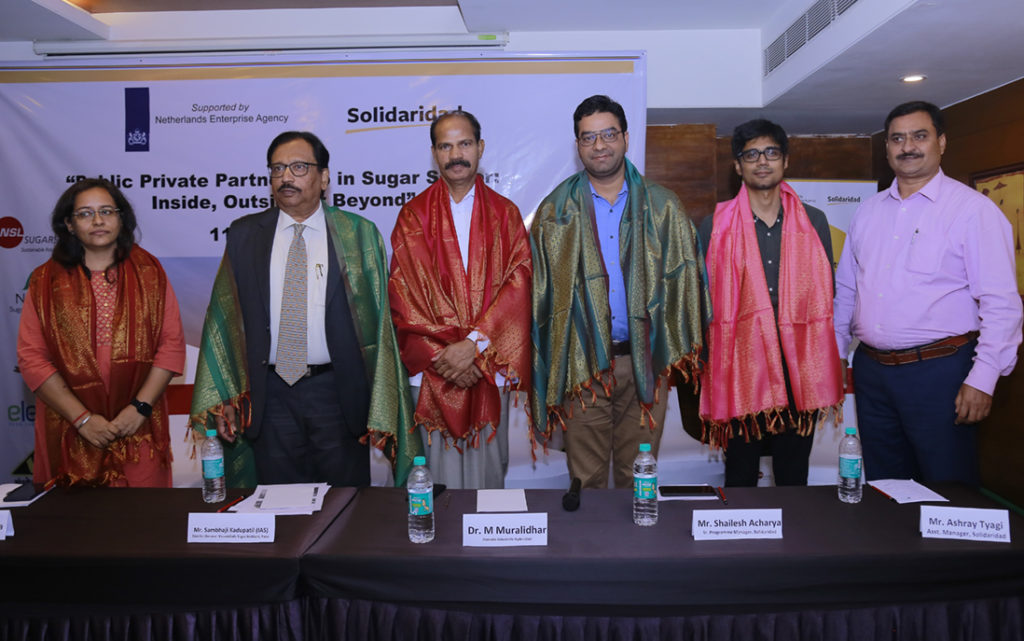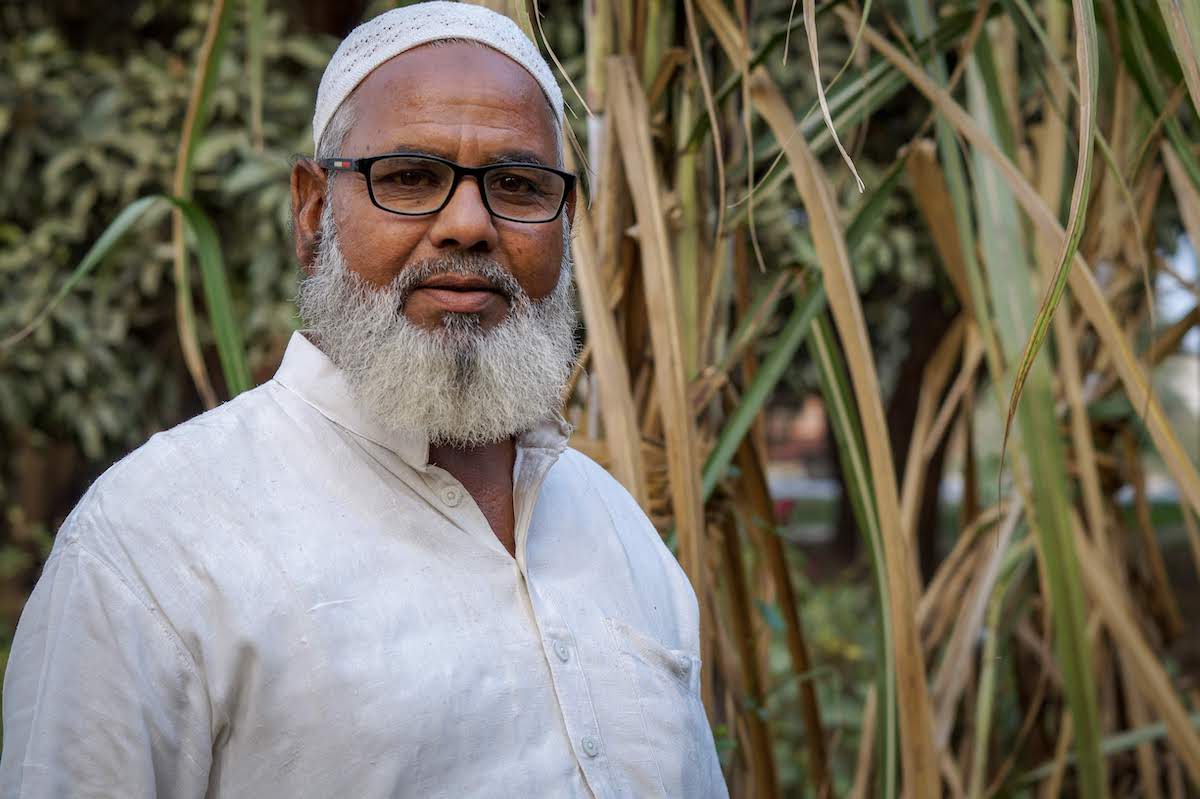The Sustainable Water Fund (FDW) project, rolled out by the Netherlands Enterprise Agency in 2015 and supported by Solidaridad, partnered with three sugar mills in southern India to design solutions that improved the viability of sugarcane farming, enhanced smallholders’ income and increased water usage efficiency.
The recently concluded project (2015-2021) reached 35,000 farmers and covered 16,200 hectare of land under improved agricultural practices. Groundwater levels were recharged 4,600 cubic meter/year and the mean income of a farmer increased by 1,150 euros per year. The results dramatically improve the long-term viability of sugarcane farming, enhance smallholders’ income and increase water usage efficiency.
These findings and more from the 7-year project were recently shared during a panel discussion organized by Solidaridad in Bengaluru on 11 October 2022.

Sugar and the Need for Sustainability
Sugar is the second largest agro-based industry in India. But its recovery rate – the percentage of sugar obtained through processing – is among the lowest in the world, which affects the profit margins of farms, as well as sugar mills. Furthermore, the sugar market in India lacks a stable price structure despite being highly regulated. These factors combined with depleted groundwater levels have forced farmers to seek ways to improve their efficiency and sustainability in every way possible.
“As per current trends, nearly 60 percent of groundwater resources will be in a critical state of degradation in the next 20 years. Water resource management is thus critical in India because of the growing demand for food, feed, fiber, power and employment. An estimated 60-70 percent of the population depend directly or indirectly on agriculture.”
– Prashant Pastore, General Manager, Solidaridad Network
Only a collaborative approach – a public-private partnership that includes all stakeholders – could attempt to address these issues at the farm, mill and market level.
Solidaridad, under the FDW project, scaled up new irrigation techniques and improved farming practices in collaboration with farmers, three sugar mills in Karnataka and Telangana, and knowledge partners Vasantdada Sugar Institute (VSI) and Osmania University.
The project aimed to encourage sustainable farming practices that had the potential to improve farmers’ socioeconomic conditions, and drive behavioral changes in favor of sustainability.
We believe progress must benefit those whose labor fuels environmental and socially sustainable practices. We are hopeful the impact of this project will provide an incentive to all stakeholders to invest in socially responsible and sustainable development practices that prioritize the needs of the farmers.
– MONIKA KHANNA, COUNTRY MANAGER, SOLIDARIDAD INDIA
Key Learnings
Farmer engagement from the beginning was critical to the programme. Potential interventions were vetted with farmers to better meet their needs and ensure greater programme engagement. Crucial lessons learned, included:
- The one-size-fits-all model does not hold. Interventions were adjusted to fit the farmer profile. For example, some farmers were able to run profitable sugar businesses despite the challenges they were facing, while others faltered. Successful sustainability interventions should always be tailored to farmers’ differing needs.
- Resource-poor farmers may require non-commodity focused interventions. Some farmers living in poverty may lack resources to invest in better agricultural practices that cost money. Their priorities too should be understood and addressed.
- Minimize the impact of shocks. In developing a programme, low prices, unrest in the sector, and labor shortages should all be factored in to provide a better understanding of the value chain.
- Consider the influence of socio-economic and environmental factors. A food system analysis will be conducted to further study the impact of these factors in depth and explore ways to nudge farmers and markets towards sustainable and resilient food systems.
For more on Solidaridad’s work in the global sugar sector, click here.

